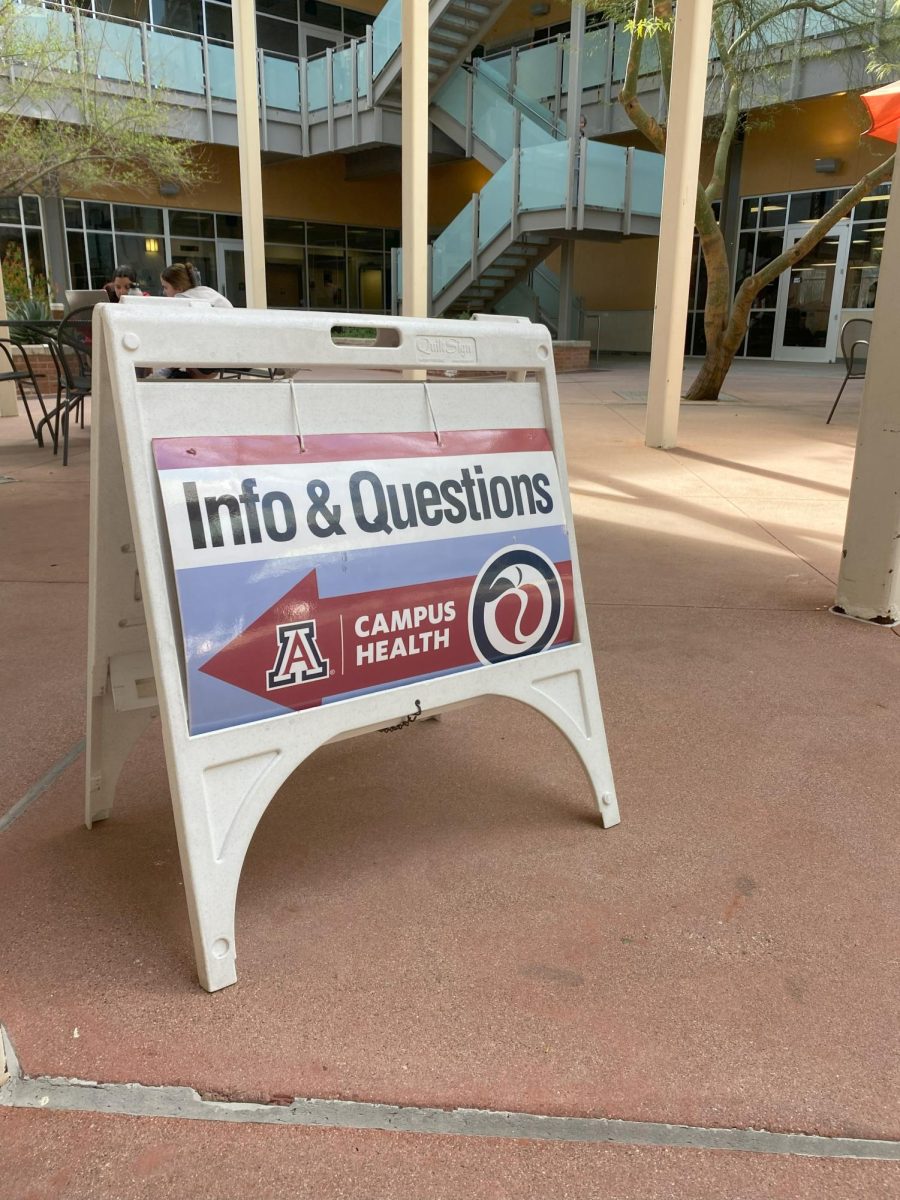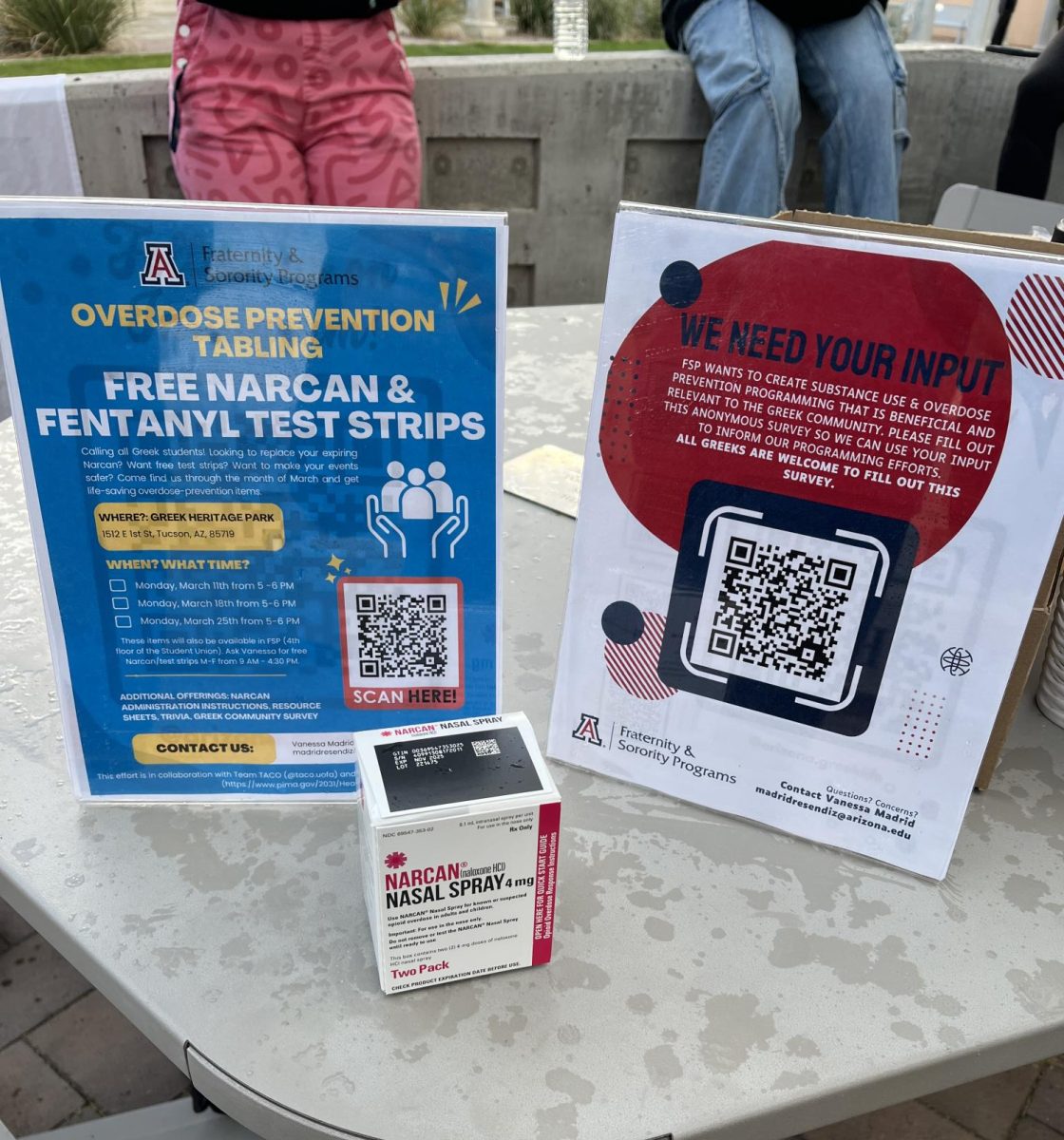 Ever since his son was diagnosed with schizophrenia at the age of 16, H. Clarke Romans has made it his life’s mission to break down the stigma surrounding mental illness.
Ever since his son was diagnosed with schizophrenia at the age of 16, H. Clarke Romans has made it his life’s mission to break down the stigma surrounding mental illness.
And Romans, director of the National Alliance on Mental Illness of Southern Arizona, was furious when the state cut funds this year for seriously mentally ill people, limiting many of the services available to them.
The budget cuts passed July 1 have meant that seriously mentally ill people who do not meet state Title XIX requirements for reimbursable services started losing funding.
The cuts meant that anyone who does not qualify for Medicaid also does not qualify for aid. Now, these people are state-sanctioned only for generic medication and some crisis services.
Previously, seriously mentally ill patients were provided name-brand medication, therapeutic services and in extreme cases, housing.
Romans has been dedicated to the mental health field for the last 31 years. He said it all began when he was living in Belgium with his family and his son Kenneth began acting out of character and bizarre.
“All of a sudden you see your handsome, smart, athletic and popular son beginning to act differently,” Romans said. “It’s like being grabbed by the neck and punched in the face. It’s difficult to understand. Then you are told your son is schizophrenic, and you begin a lifelong membership to a club that you never wanted to be part of.”
Initially, Romans got involved because he wanted to learn more about his own son’s condition, but after some time, it became his vocation and passion to spread awareness to the public and break down the stigmas surrounding mental illness.
“The only benefit these people have retained is access to generic medications,” Romans said. “They don’t even get prescribed these drugs by doctors, but instead they are given drugs by nurse practitioners. In my opinion, the choice to cut this funding was both amoral and unethical.”
But one legislator who supported the cuts said the state can no longer afford to support all its programs, particularly during a recession.
“We’ve seen this throughout the United States and Arizona,” said Rep. Vic Williams, a Republican whose District 26 covers Marana, Oro Valley and parts of Tucson. “We don’t have the money to support as many programs as we could have three years ago. We have to make choices about what gets cut.
“It’s about prioritizing. First is public safety, second is public education.”
Meanwhile, the state is facing even bigger budget cuts this year and into the next fiscal year.
Since 2008, Arizona has endured more than $4.4 billion in spending cuts.
The fight continues
Romans’s son died young, at 37, on Sept. 11, 2001, when riding his bike. The fact that this happened on 9/11 was disturbingly coincidental.
Mentally ill people die on average 25 to 30 years younger than those without mental illnesses, and this is generally due to suicide, risky behavior or side effects due to medication, Romans said.
He said that the budget cuts have resulted in upwards of 28,000 Arizona residents not getting the treatment they need, and the state’s decision to cut funding is wrong because of its moral ramifications and shortsighted financial intentions.
“I guess my initial reaction was that the people who were coming up with these budget cuts probably had no idea about the ultimate impact on the economy,” Romans said. “They thought they’d ultimately be saving money, but as a community, we’ll be spending a lot more.
“Instead of just giving these people a pill every day that costs $8, we’re throwing them in jail, which is $80 a day, or a mental hospital, which costs $800 a day.”
Mark Clark, director of local behavioral health center CODAC, said four to seven seriously mentally ill end up in a hospital on any given day.
Romans said that because Republicans swept the state in the November elections, he fears that the seriously mentally ill will be facing even bigger problems in the future. He and Clark and other mental health professionals formed a coalition called Community Awareness earlier this year that sought to education the mentally ill on how to vote in favor of candidates and laws that can benefit them, but the effort wasn’t successful.
Time to be creative
Now Romans has come up with new ways to combat the budget cuts. He even has found a pharmacy in Canada, which he claims is legitimate, that will send drugs to the U.S. cheaply.
“It’s just plain stupid to me that these people can get their medications from Canada, but they still don’t get the care they need from a doctor,” Romans said.
In the end, Romans and others continue to spread awareness about mental illness and the importance of mentally ill people getting the care they deserve.
He said: “A reporter said to me the other day, ‘Your office is right there on 22nd Street, and there must be thousands of cars that drive by every day. How many do you think actually care about the mentally ill?’
“I told him about 10 percent. And I fight to increase that percent.”










